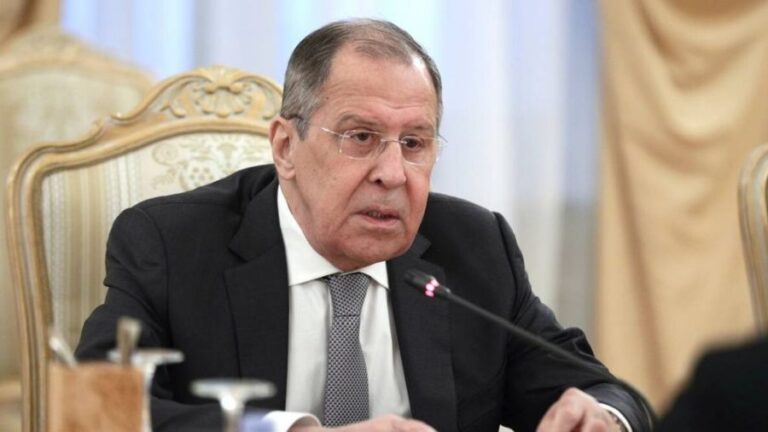Ha’aretz: Meet the Israelis ‘Not Jewish Enough’
How Israel excludes those ‘not Jewish enough’: Meet the ‘second-class’ Jews whose plight is sparking an uprising against Israel’s supreme religious authority.
Many are children of Jewish fathers and non-Jewish mothers, largely Russian-speaking immigrants. Some are Jews of choice whose conversions are unrecognized by Israel’s supreme religious authority because the rabbis who signed their certificates either do not measure up to the strict standards of the Chief Rabbinate or operate outside its state-sanctioned system. Others belong to emerging Jewish communities in remote parts of the world that have yet to be recognized by Israel’s gatekeepers, the bureaucrats at the Ministry of Interior. Still others are born Jews with no affiliation who, therefore, have no hometown rabbi to vouch for their lineage.
Whatever the case may be, they all consider themselves Jewish. But to pass muster with those who rule on such matters in Israel, they are required to undergo formal, state-sanctioned Orthodox conversions, even if they have converted already. Otherwise, they will not be permitted to marry in the country, and neither will their children.
Meet Israel’s “unconverted” Jews – a group comprising both Israeli citizens and Israeli hopefuls who do not qualify as Jewish by the powers that be in the Jewish state. It is precisely this population that has been the focus of several bold new challenges to the authority of Israel’s Chief Rabbinate. One such initiative, publicized last week, is the creation of a new, alternative Orthodox rabbinical court that operates outside the Chief Rabbinate. In recent months, this private court has converted close to 50 Israelis, most of them Russian-speaking immigrants born to Jewish fathers and non-Jewish mothers. Another initiative, publicized last month, is the creation of a new Jewish Agency-sponsored “traveling” rabbinical court that will facilitate conversions in communities overseas, where certain rabbis have been blacklisted by the Chief Rabbinate.
Despite such initiatives, however, it would be premature to declare salvation on the horizon. Many of Israel’s “unconverted” Jews are secular and will continue to resist Orthodox conversions if they are required to become religiously observant — or, at the very least, “traditional” — as part of the deal. Although its rabbis may be friendlier, the new alternative conversion court has not waived this requirement. Yet still other “unconverted” Jews will continue to defy those who challenge their Jewish credentials and, as a matter of principle, refuse to convert.
Take Karen Brunwasser whose story, fortunately for her, had a happy ending.
Israel’s poster girl for immigration
Brunwasser had been the poster girl for aliyah. Literally. A beaming photo of her arriving in Israel was once featured in a brochure produced by Nefesh b’Nefesh, the organization that promotes Jewish immigration from North America. But seven years after that joyous landing in the country, when Brunwasser met the man of her dreams and was about to tie the knot, she suddenly discovered another far less welcoming side to her newly adopted homeland.

A native Philadelphian, Brunwasser was born to a Jewish father, the child of Holocaust survivors. She and her mother, who had not been born Jewish, were converted by an Orthodox rabbinical court in Philadelphia when she was just a baby. But the Israeli Chief Rabbinate deemed her conversion invalid for the following reason: Two of the Orthodox rabbis who oversaw the procedure had once officiated at services in synagogues where men and women sat together. Therefore, they ruled, she could not get married in Israel without converting again. Brunwasser refused.
The morning before her wedding, she received a phone call notifying her that, on second thought, the Chief Rabbinate was willing to recognize her conversion and would not require her to repeat the process. That last-minute ruling came after a few friends in high places made some frantic phone calls on her behalf.
“It’s ultimately a happy story for me, but not really,” observes Brunwasser, a senior executive at an organization that promotes cultural events in Jerusalem. “If I didn’t have those connections, I would not have been able to get married here, and that’s a sad thing.”
Hundreds of thousands of others do not have those connections, and despite being citizens of Israel, are still not considered Jewish enough for the country. Like Brunwasser, many of them received the red-carpet treatment when arriving in the country only to discover, once inside, that their Jewish credentials fell short.
Jewish enough for Birthright, but not for Israel
The Law of Return grants automatic Israeli citizenship to any immigrant who has at least one Jewish parent or grandparent, is the spouse of a Jew, or has been converted by a rabbi in a recognized Jewish community, regardless of its affiliation. But for the Chief Rabbinate, which controls marriage and burial laws in the country, that is not always good enough. To be married or buried in a state-sanctioned Jewish ceremony, Israeli citizens must be Jewish according to halakha (Jewish law): That is to say, they must be able to prove that they were either born to a Jewish mother or that they were converted by a rabbi recognized by the Israeli Chief Rabbinate. Not only are non-Orthodox rabbis completely disqualified from this list, but in recent years, the Chief Rabbinate has also begun blacklisting Orthodox rabbis it views as overly progressive and even ultra-Orthodox rabbis who perform private conversions.
It’s not only immigrants who fall into this growing category of “unconverted” Jews. Among the tens of thousands of participants in Israel-experience programs each year, a considerable number often choose to stay on or return to spend more time in the country. Only when they submit a request to extend their visa or change their status in the country do some discover that being Jewish enough for Taglit-Birthright or Masa does not necessarily make them Jewish enough to stay in Israel, and that to remain in the country, they are required to produce documented evidence of a mother’s or a grandmother’s Jewish lineage.
Others are turned away even before they arrive at Israel’s gates – or even worse, arrested or deported soon after they enter. In most cases, these unlucky souls are converts from so-called “emerging” Jewish communities in Third World countries that are not recognized by the State of Israel.
And although the new, alternative religious court and the Jewish-Agency “traveling” court may ultimately help some of these individuals, under the new Israeli government, with its strong Orthodox bent, their situation appears bound to get worse before it gets better. Indeed, last month, the cabinet voted to roll back all progress achieved in recent years in conversion reform, in particular the establishment of municipal conversion courts, while transferring control of the state-sanctioned conversion courts from the Justice Ministry to an ultra-Orthodox party.
Compounding the problem, prospective immigrants, especially from North America, now find themselves with extra hurdles to overcome. “American Jews over the years have become less connected to the organized Jewish community,” notes Rabbi Seth Farber, the founder and executive director of ITIM, an organization that helps news immigrants challenged by Israel’s religious bureaucracy. “That means it is even harder for them to produce the documentation required today to prove their Jewishness.”
How Israel treats the ‘other’
By far the biggest group of “unconverted” in Israel are the Russian-speakers, an estimated 280,000 of whom are defined by the Central Bureau of Statistics as “other” or “no religion” – that is to say, neither Jewish nor Arab. The overwhelming majority are children of Jewish fathers and non-Jewish mothers who, growing up in the former Soviet Union, never thought of themselves as anything but Jewish.
A case in point would be Judith Weinstein, a Russian-born religious rights activist, who has held various senior positions in the Jewish organizational world. “I grew up with a very strong Jewish identity,” she recounts,” so when I moved to Israel in 1998, I was shocked to discover that I wouldn’t be registered here as a Jew.” The problem was that Weinstein’s mother wasn’t Jewish. The state-sanctioned Orthodox conversion she underwent, she recounts, was traumatic. “You go to the conversion court, and they ask you questions like, ‘Why do you want to be part of the Jewish people’? It’s as if they wanted to erase the 20 years I was raised and lived as a Jew. Then I was given a so-called birthday party when I finished the conversion to symbolize the fact that I’d been reborn as a Jew. I found that quite insulting since I always considered myself a Jew.”

Jennifer Poliakov, a 31-year-old Russian-born doctoral student at Tel Aviv University, arrived in Israel with her parents in 1993. Her father is Jewish, but her mother is not. After Poliakov completed her army service, she succumbed to peer pressure and converted. “I wanted to be like everyone else in the country,” she explains.
But looking back, she regrets that decision, particularly after two rabbis on her conversion court walked into the mikveh, or ritual bath, as she was completing the process. She happened to be stark naked at the time, and when she began screaming, they said it was a mistake. Poliakov later exposed this story in the Israeli press.

It’s not surprising that Russian-speaking immigrants comprise a disproportionate share of those leaving the country in recent years, says Vadim Blumin, an activist in “Generation 1.5” – a new organization that has taken on the cause of these “unconverted” citizens. “What people in Israel don’t understand,” he says, “is that these Russian-speakers have an extremely strong Jewish identity – it’s just not based on religion.”

According to Central Bureau of Statistics figures, more than one-third of the Israelis who have emigrated in recent years fall into the demographic category of “other” or “no religion.”
A new study published by Netanel Fisher, of the Open University and the Israel Democracy Institute, has found that efforts by the Israeli government to promote conversion among Russian-speakers have largely failed. Only about 8 percent of the 280,000 not considered halakhic Jews have converted. Many, he explains, consider themselves Jewish and see no reason to convert. But many others are put off by the cumbersome process, and in particular, the need to embrace an Orthodox lifestyle as part of it. After all, most of Israel’s Russian-speakers are very secular.
According to Fisher’s findings, among those who enter state-sanctioned conversion programs, about half drop out. “The situation has reached a point where the number of dropouts is higher than the number of converts,” he writes.
It is noteworthy that Ethiopian Israelis, who do not fall into the category of halakhic Jews, have exhibited much less resistance to converting and much more inclination to embrace Orthodoxy.

Getting real about life in Israel
Rabbi Andrew Sacks, the director of the Conservative-Masorti rabbinical assembly in Israel, believes the organizations promoting immigration in the former Soviet Union need to be more up front with prospective candidates about the reality of life in Israel. “We’ve got all these Jewish organizations investing lots of money in all sorts of Jewish programs in the former Soviet Union, but many of the people attending these programs are not halakhic Jews, and nobody there is demanding that they convert,” he notes. “Then they come to Israel, and suddenly we’re imposing a different definition of who is a Jew on them. So either we’ve got to start making it easier for them to convert or we’ve got to let them know before they come to Israel that they won’t be considered Jewish here.”
Poliakov, who has become a prominent activist in Generation 1.5, has made it her personal mission to help educate those who may be ignorant of what faces them should they decide to immigrate to Israel. A few years ago, she recalls, a cousin of hers was in Israel on a Birthright trip, and she joined him and some of the other participants for a night out in Tel Aviv. “I asked them if they were Jewish, and they said ‘of course,’” she relays. “Then I asked them if they were Jewish halakhically, and they had no idea what I was talking about. When I explained to them what I meant, it turned out that many of them did not have Jewish mothers.
“They were all gung-ho about moving to Israel, but I explained to them that if they moved here, they wouldn’t be able to get married, and if they joined the army and God forbid got killed, they would have to be buried outside the fence of the Jewish cemetery. These are the sort of things the Jewish Agency doesn’t tell you when you’re considering immigration.”
In a groundbreaking decision, the Israeli Supreme Court ruled in 2002 that the Ministry of Interior must register as Jewish any individuals who undergo Conservative or Reform conversions in a recognized Jewish community abroad. Controversy prevails, however, over the definition of a “recognized” community. More often than not, it depends on which rabbis performed the conversions. When they are Orthodox rabbis, the community in question is more likely to be recognized, but when they are non-Orthodox rabbis, it is less likely to be.
Such has been the case with the 1,500-strong Abuyudaya Jewish community in Uganda, whose members have been converted mainly by Conservative rabbis. The Ministry of Interior has for several years refused to admit the Abuyudaya into the country on the grounds that it has yet to determine whether they belong to a “recognized” community. The same holds true for a group of Peruvians converted by Conservative rabbis – the descendants of Moroccan Jews who relocated more than a century ago to the Amazon jungle and are now interested in immigrating to Israel.
Among those who have come under particular scrutiny in recent years have been African-American converts. The Ministry of Interior has made no secret of its concerns about their possible ties to the Black Hebrew Israelites – a community of African Americans in Dimona, most of them originally from Chicago, who maintain they are descendants of the Tribe of Judah but are not recognized as Jews by the state.
That is why 35-year-old Adi Quick could soon face deportation. Raised in a Christian family in Houston, Texas, Quick was drawn to Judaism as a young adult and converted by a Conservative rabbi. A mother of four, including one autistic child, she came on a trial trip to Israel with her second husband about a year ago to see if they wanted to settle in the country. The only problem is that her second husband, who has since converted to Judaism, comes from a Black Hebrew family. So while he has Israeli citizenship, she does not, yet it is because of his family ties that her motives for being in the country are being questioned.

“I sat in the Ministry of Interior and was grilled about why I wanted to become Jewish and what are my connection with the Black Hebrews,” she recounts. “They made me feel as though I’ve done something wrong by marrying my husband. Converting to Judaism was such a beautiful thing for me, but now that I’ve been living in Israel, the whole experience has been so disappointing.”
Converting ‘for the wrong reasons’
Nicole Maor, an attorney at the Israel Religious Action Center – the advocacy arm of the Reform movement – has represented hundreds of citizens and non-citizens deemed not Jewish enough for Israel over the past 20 years. “For some reason, there is more and more suspicion these days that people are converting for the wrong reasons,” she observes. “My fear is that what the Ministry of Interior considers to be the right reasons are much more limited than what the Jewish world would consider them to be.”
Not only has the Ministry of Interior become more suspicious these days, she reports, but so too has the Chief Rabbinate, making it harder for even Orthodox conversions, performed outside its state-sanctioned courts, to be recognized. “It would seem that the more the Chief Rabbinate comes under fire, the more it feels the need to defend itself, and the more extreme it becomes,” she says.
Jewish Agency figures obtained by Haaretz show that anywhere from five to six percent of all candidates for immigration from North America in a given year are converts. This group is likely to find itself under increased scrutiny in the near future, as attitudes harden. Another potential time bomb is the dramatic rise in immigration from Ukraine, in wake of the economic and political upheaval in that country. The great majority of these newcomers are not defined as Jews halakhically, yet they make up the single largest pool of immigrants to the country these days.
As Israel’s “unconverted” grow in numbers, argues Fisher, they pose a threat to the Jewish character of the state. “As more and more Israelis refuse to convert, intermarriage will start to become a real problem in this country,” he warns, “just like it is overseas.”
Fisher sees two possible solutions. “We either do away with the Chief Rabbinate altogether and have a decentralized system, like in the United States, or we allow the Chief Rabbinate to maintain its monopoly but require it to become more flexible,” he says. “I personally favor the second approach.”
Generation 1.5 advocates a far-more radical solution: not requiring conversion at all. As the organization notes on its Facebook page: “We are Jewish because that is how we define ourselves, because that is our family background and because we are part of the Jewish collective – not necessarily because the Chief Rabbinate deemed us Jewish. Our Judaism is multi-dimensional. We can be Jewish and also something else, Jewish from one perspective and not from another, halakhic Jews and non-halakhic Jews.”
By Judy Maltz
Source: Ha’aretz






